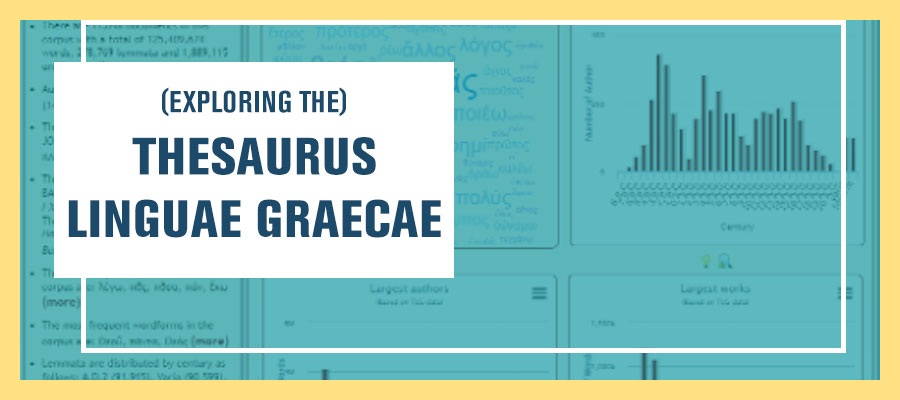(Exploring the) Thesaurus Linguae Graecae
This workshop offers an introduction to the Thesaurus Linguae Graecae (TLG), an essential digital library encompassing Greek literature from antiquity through the Byzantine period to the modern era. Designed for scholars in various fields, this session will demonstrate how to utilize the TLG effectively in academic research.
The three-hour workshop will consist of two main parts. In the first part, we will explore the history and development of the TLG, founded in 1972 at the University of California, Irvine, and its evolution into one of the most invaluable digital tools for Greek literature worldwide. We will detail the process of digitizing Greek texts, making them accessible globally, and demonstrate the current interface and its various capabilities. The second part will be more practical, focusing on the actual usage of the database. Through specific examples, participants will have the opportunity to apply the information provided and experience the TLG in action. From simple searches for words and authors to parallel browsing of works and intertextual phrase matching (N-Grams), attendees will learn and apply the various functionalities of the TLG to their own research.
This workshop addresses a wide range of scholars across different disciplines. Given the vast number of texts from antiquity to the modern era and the continual updates to the TLG database, its material and search capabilities can significantly aid the research of Classicists, Medievalists, Byzantinists, Art Historians, and many others. Even if Greek literature and text study are not central to your work, the TLG can provide support in understanding historical context, exploring iconography and symbolism, offering stylistic and technical analysis, facilitating cross-disciplinary research, and more.
Join us to discover how the TLG can be an invaluable tool in broadening the scope of your research and enriching your understanding of Greek literature from antiquity to modern times.
Workshop Checklist
- Computer or laptop.
- Stable internet connection.
- To participate fully, participants will need a full subscription to the TLG Database (for individuals or institutions). For those without a subscription, TLG open access functions will be discussed, and all exercises and assignments will be displayed to participants in real time via screen share. Information on individual subscriptions is available HERE.
- A second screen if possible. A second screen will allow you to follow the discussion and look at the TLG in real time.
REGISTRATION IS CLOSED
Who is eligible?
- Graduate students and early career researchers (PhD received October 2016) in the field of Byzantine studies. Students enrolled in graduate programs in North America and early career researchers working in North America will be given priority. If you are not already a BSANA member, please complete the BSANA Membership Form before registering for the workshop. Your membership status will be confirmed before your space in the workshop is confirmed.
This workshop is part of the partnership between the Mary Jaharis Center for Byzantine Art and Culture and the Byzantine Studies Association of North America to provide digital humanities training opportunities to graduate students and early career researchers.
